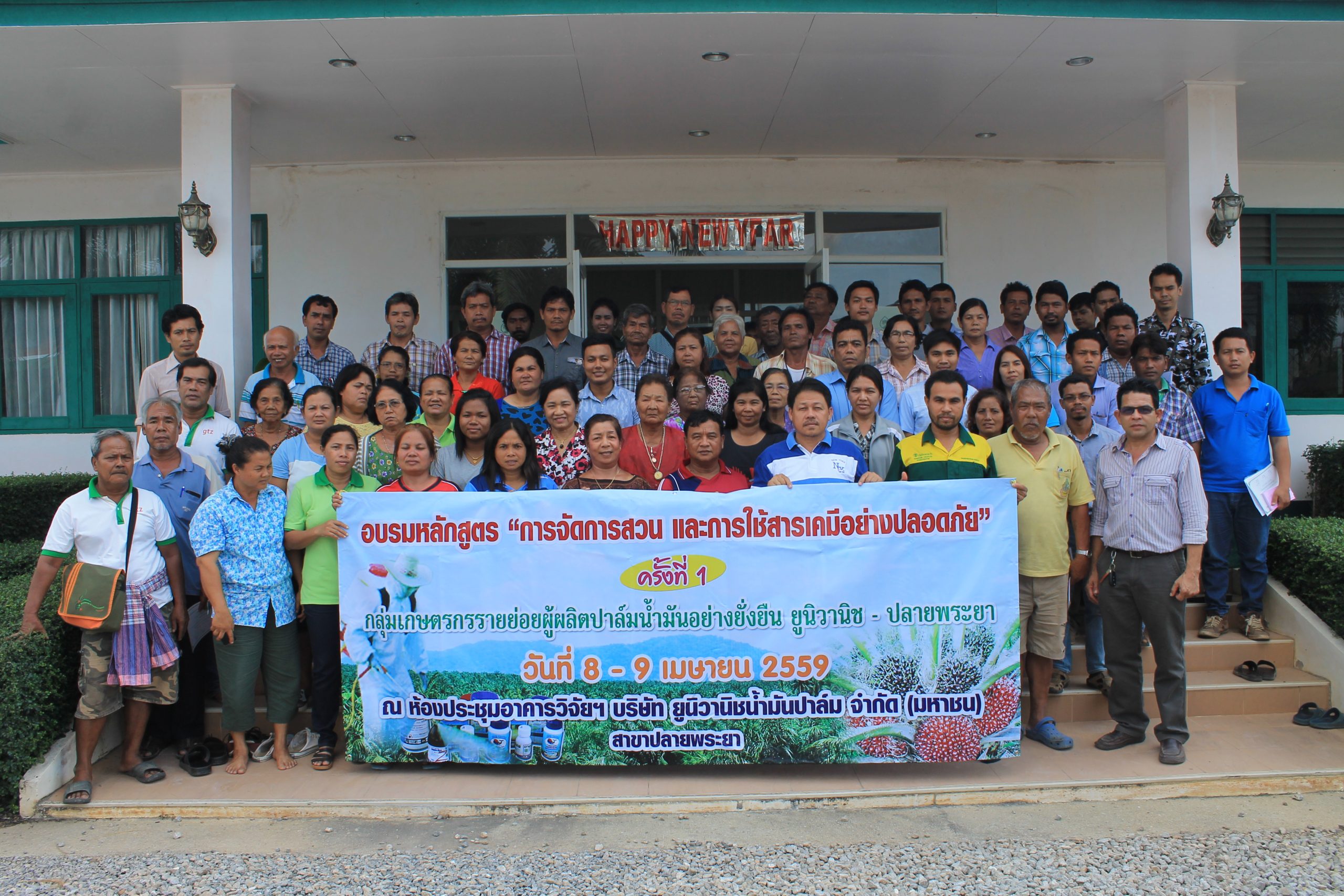
About the group
Number of smallholders: 260 (146 Men, 114 Women)
Total Land Area: 1342.12 Ha
Status: Certified
Group location: 592 Moo 9, Plaipraya Sub-district, Plaipraya District, Krabi Province 81160
Country: Thailand
On-going Facilitator:
SUSTAINABILITY JOURNEY STORY
“The group’s future issue is to determine if farmers will continue to comply with standards in daily routines if there is no incentive or less motivation from RSPO Certification.”
Mr. Kuakun Seangtan Group Manager Univanich-Plaipraya Community Enterprise Group
…
“The Univanich Plaipraya Community Enterprise was founded with support from the German Organisation for International Cooperation (GIZ) and the Univanich Factory, which introduced new practices and conducted expert-led trainings on better farm management,” Kuakun began.
“Early on, each farmer focused only on their own farm,” the Group Manager continued. “They had very little training and frequently followed the recommendations of vendors regarding fertiliser application. Experts from the Provincial Agricultural Extension Office visited occasionally to provide trainings. After the group was created, however, it organised trainings with academics or professionals to educate farmers at least twice a year.
“The primary motivation for farmers to become certified members of sustainable palm oil plantation was to earn higher pricing. However, they eventually realised that they had learned how to improve farm management from the group. They understood that it is not only about ’gaining benefits,’ but also respecting all group rules.
“Group requirements include keeping farm records on performance, using suitable fertilisers, minimising spraying grass with chemicals. After we shared these guidelines, a few farmers refused to change their ways and left the group,” said Kuakun.
When asked about the economic and social consequences on the surrounding communities as a result of RSPO Certification, Kuakun responded, “The immediate community and other stakeholders are more aware of RSPO Standards. The group has raised the bar with environmental performance; managing mountainous ecosystems where wild and native animals thrive, supervising areas adjacent to rivers to prevent chemical pollution by runoff, protecting the river banks to avoid erosion and minimising the use of chemicals in general.
“The communities surrounding the group’s palm farms have no environmental issues, maybe because they have lived together for over 50 yearsIf any farmer’s land encroaches on the protected wildlife sanctuary or conservation area, the group will refuse to admit them as members,” said Kuakun.
In delineating the favourable local implications of the group’s sustainable oil palm plantation effort, Kuakan said, “Farmers receive trainings on developing oil palm plantations and limitations of fertiliser use. Using chemicals only when necessary reduces costs.
“At the moment, the group has no social or environmental initiatives, but they are aware that they can plant valuable trees or fruit at the farm’s boundary. The Palm Plantation Competition Project is now underway, with support from Univanich Public Company Limited.“
When asked about the challenges encountered in advancing toward sustainable plantation methods, Kuakun stated, “Self-learning on principles and criteria is essential. However, some find the academic principles too difficult. Moreover, the guidelines are written in English.
“Applying for group certification is a challenge. Principles or criteria may either be interpreted differently or not fully met. Inspectors frequently interpret the principles at a higher level. Farmers may not understand the criteria and are unsure of how to comply with them. Reading the principles occasionally necessitates interpretation. They must determine what work is required but may not always be correct about how to accomplish the criteria.
“Every year principles and criteria are revised, of which the Group Manager must keep track. It is quite a difficult task given that the group is independent and has little staff. When the group is able to sell credits, the revenue will be utilised to administer the group,” explained Kuakun.
When asked about the group’s goals for the coming year or their five-year plan, Kuakun stated, “We aim to increase the yield to 4 tons per rai per year and improve farm management practices to be more efficient, such as adding fertiliser based on leaf analysis results. In terms of membership, our goal is to add roughly 10 new members per year.
“The biggest change after shifting to sustainable palm plantation practices is better understanding of farm management practices. Members have more education, are more health conscious and cognizant of chemical safety. Earlier, they may not have protected themselves. However, for the time being, the group offers members blood tests to monitor pesticide residue in their blood.”
When asked how to ensure that smallholders remain certified in the long run, the Group Manager stated, “Earning income from selling credits and having strong group managers with good vision for development are key factors.”
Summarising how to assist smallholders in becoming RSPO Certified, Kuakun stated, “We need to simplify the processes because farmers don’t like working on something complex. As a result, the group has committees that are capable of handling the application procedure for certification. Following RSPO Accreditation, the group’s future issue is to determine if farmers will continue to comply with standards in daily routines if there is no incentive or less motivation from RSPO Certification.”
Project Impact
Total area covered by the project
1342.12 Ha
Number of smallholders benefitting from this project
260 Smallholders
Number/percentage of women supported by this project
43.85% women in this project
How you can support
- We aspire to acquire knowledge both in strategic planning and effective management of the group, ensuring its enduring strength. Additionally, we aim to enhance our expertise in sustainable management of oil palm plantations. You are welcome to participate as a speaker or facilitator for our training sessions and workshops to help fulfil these objectives.
- Kindly assist us in purchasing credits for our group within the RSPO PalmTrace system (PalmTrace Member ID: RSPO_PO1000005184).
GROUP CONTACT
Representative Contact
Kuakun Seangtan | Group Manager | [email protected] |
Pensri Yingdee
Sustainability Manager
(+66) 87 906 4847
[email protected]
IMAGE GALLERY

Univanich-Plaipraya Community Enterprise Group
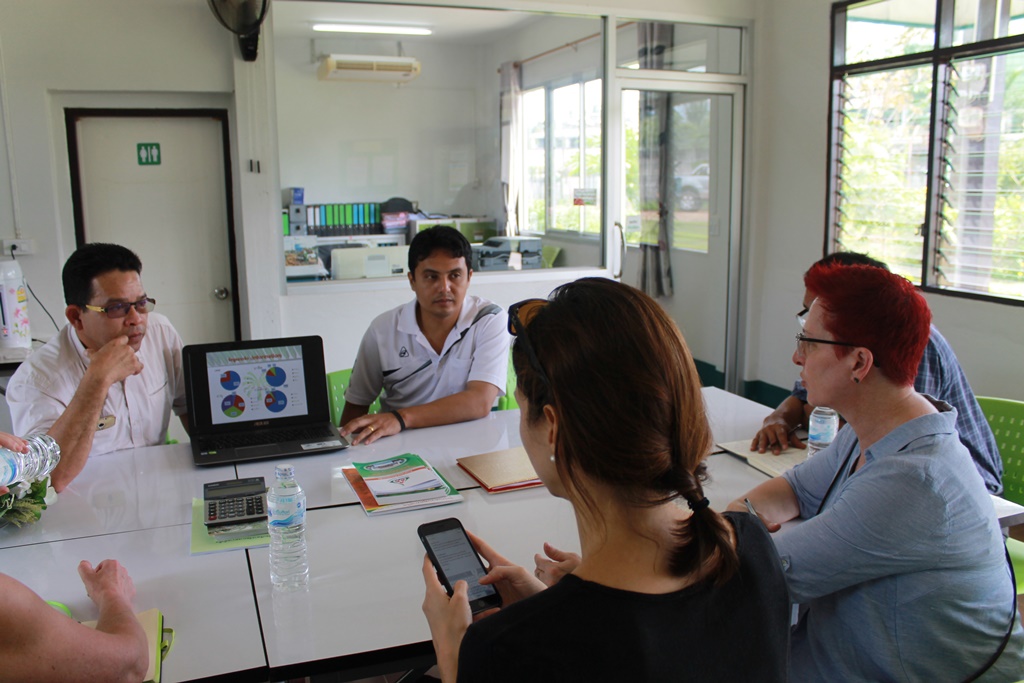
Univanich-Plaipraya Community Enterprise Group
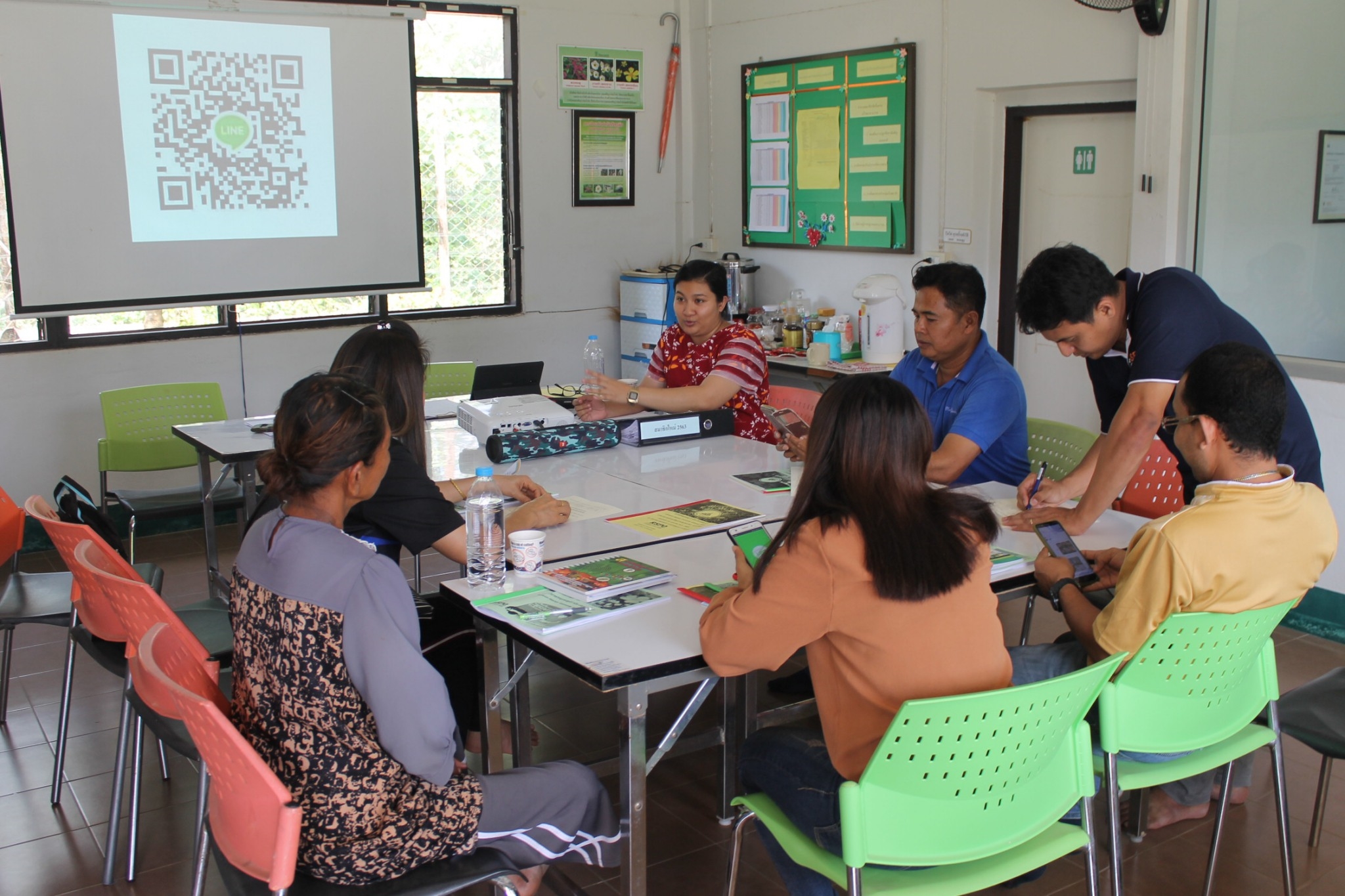
Univanich-Plaipraya Community Enterprise Group
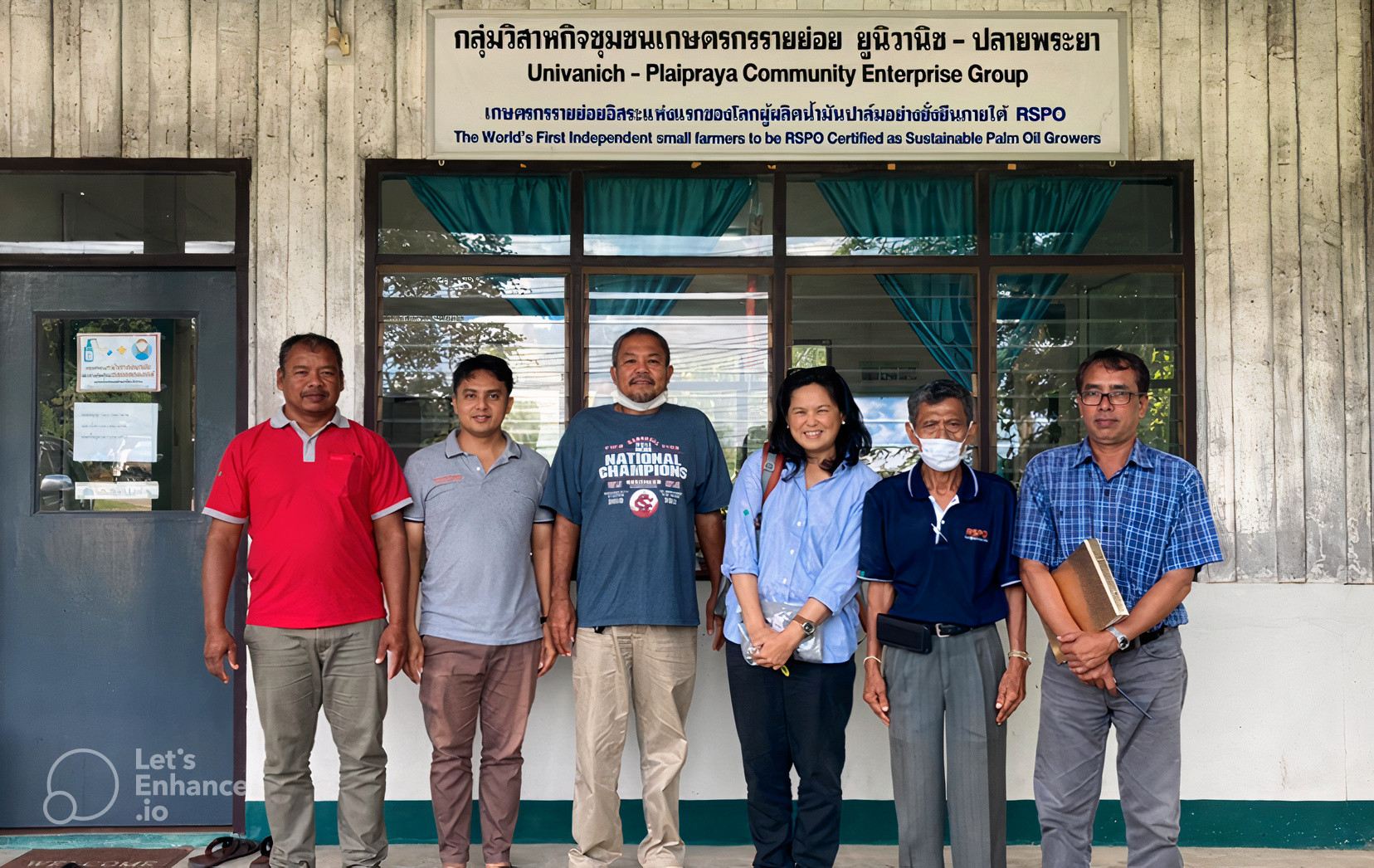
Univanich-Plaipraya Community Enterprise Group
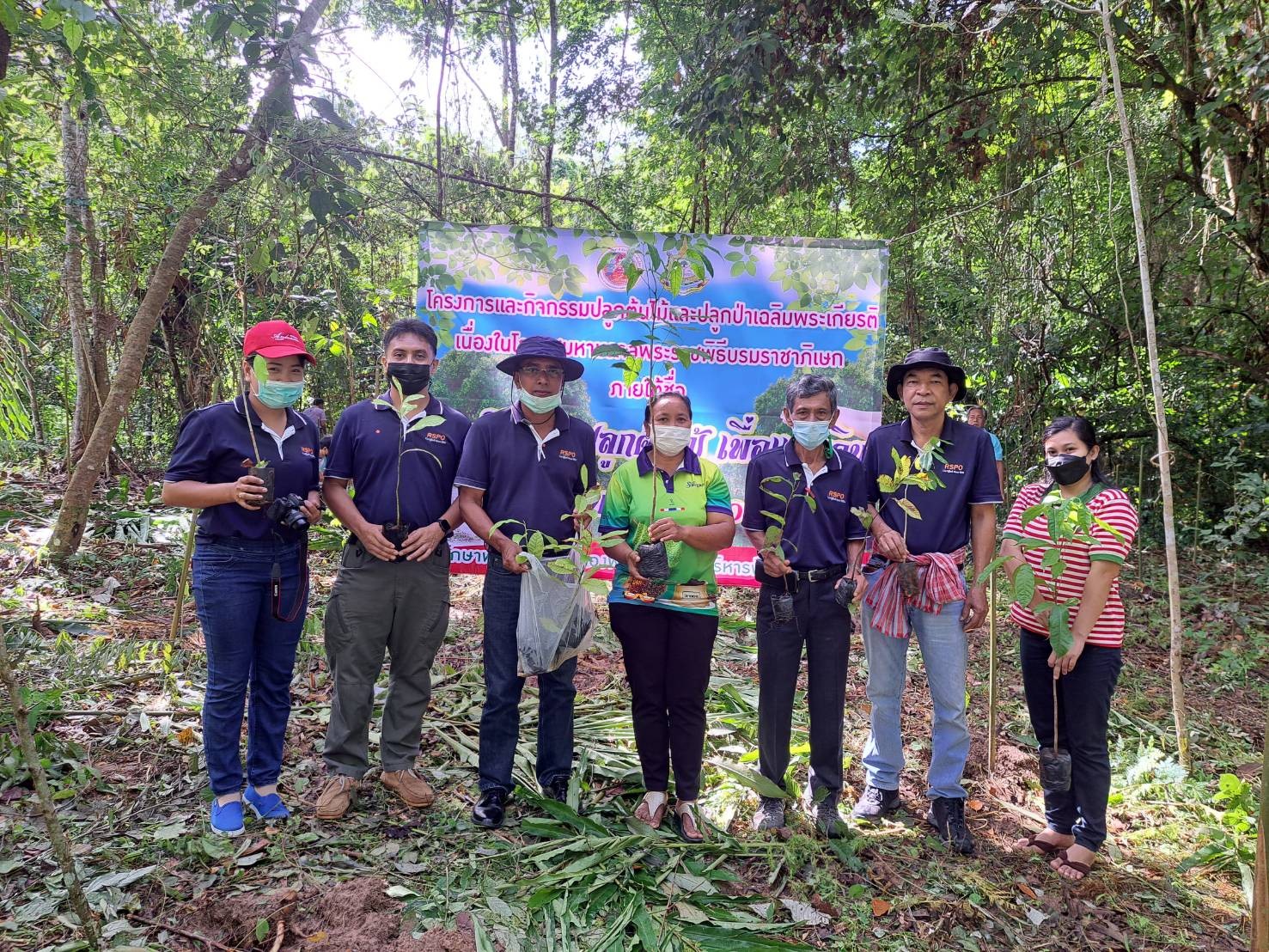
Univanich-Plaipraya Community Enterprise Group



